If you’re reading this, you probably don’t need to be convinced that psychiatric meds can be dangerous and hard to come off of. Even in normal circumstances, there is not adequate medical care available for people seeking to come off psych meds. Now that most “non-essential” medical care is harder to access, if available at all, it is more pressing to find alternative approaches that work.
We don’t know how long we will be socially distancing, but things are not likely to return to normal anytime soon. So it is important not to do anything that will create a medical emergency, like getting on psych meds in a panic, and being left to your own devices to manage dangerous effects and difficult withdrawal.
I’ve been working with individuals, families and communities for nearly 2 decades, and had to withdraw from psych meds myself when they nearly killed me in 2002. So i know first, second and third hand how dangerous they are and how nearly impossible withdrawal can be.
Each person must make their own decision, but if at all possible, please don’t get on a dangerous, dependency creating substance in a panic without considering safer options.
From Globaldata:
An estimated 1.5 billion people around the world have been asked to practice social distancing amid the outbreak of coronavirus (COVID-19) that has caused the deaths of more than 69,000 people. The rapid spread of the disease, escalation of pulmonary symptoms, financial disruption, travel restrictions and social isolation have been cited as a catalyst for increased prevalence of mental disorders such as depression across a variety of age groups, says GlobalData, a leading data and analytics company.
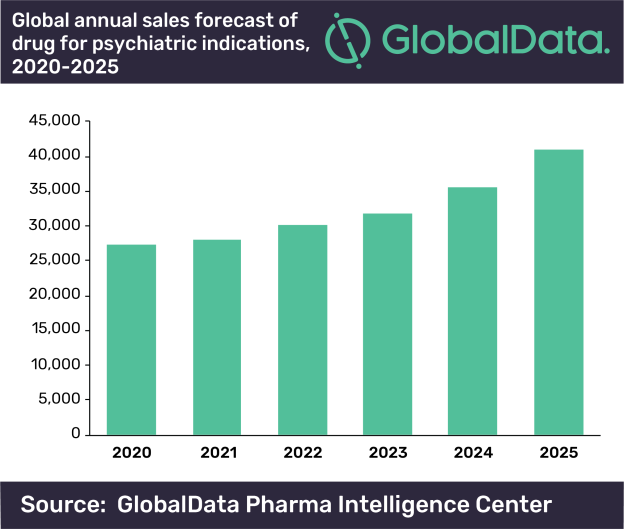
Magdalene Crabbe, Pharma Analyst at GlobalData, comments: “Sales of drugs for psychiatric disorders such as depression, anxiety and obsessive compulsive disorder are expected to reach $27.4bn in 2020 – an increase of $717m from the previous year. Sales are then expected to increase from $27.4bn in 2020 to $40.9bn in 2025, growing at a compound annual growth rate (CAGR) of 8.4%.
“Personalized treatment strategies are important for treating psychiatric disorders, which may be exacerbated by the COVID-19 crisis. Responses to therapy are highly diverse, and drugs that work for some people may not be effective for others.
“It is important that people realise that depending on pharmaceutical drugs is not necessarily the solution to the negative impact that COVID-19 will have on people’s mental health. Recovering from the worst pandemic this century has experienced so far will be achieved through a combination of approaches, including psychotherapy, physiotherapy and financial assistance.”
It’s okay to be afraid
A lot of us are afraid right now. Scared of not having adequate money or access to basic needs, housing instability, problems in our relationships, long term isolation and separation from people. The list goes on.
Even fear of the unknown and fear of death or the loss of loved ones are huge. Allow yourself to feel this, and to grieve in whatever ways you have access to. Crying a lot, sleeping a lot, needing more phone calls with friends are all completely natural responses.
Having all of these valid fears and concerns does not mean there is something wrong with you or that you need to go on psych meds.
What I’m doing
Here are some strategies and practices I am using and I can help you find ones that will work for you, specific to your situation. That’s what I have been doing in my consulting practice and at other jobs for nearly 20 years. (These will not apply to everyone, but maybe something here will inspire you).
-spending as much time as possible in nature (I’ve been peeing almost exclusively in the woods when I’m out, with few public bathrooms open)
-talking on the phone with friends (sometimes while outside, sitting against a tree, watching a river flow)
-going to sleep early whenever I feel like it, sometimes as early as 7:30! The extra sleep feels amazing.
-taking supplements like vitamin C, vitamin D, magnesium, cod liver oil and melatonin
-reminding myself it’s okay to be happy and feel good sometimes, even during a worldwide crisis (feeling good also has ripple effects out to the rest of the world)
-writing in my journal with pen and paper, sometimes outside
-lying down on the earth, in the sun
-hugging trees, hugging many trees in a row until my heart feels full and the trees look like beams of light (the more trees I hug, the more soothed I feel)
-putting my hands or feet in the dirt
These are the things I have been doing. How are you dealing with this if you live in a big city without access to nature? My dad lives in Brooklyn and has been going for short bike rides twice a day. Please share in the comments what is helping you, especially if you live in a city.
Cocooning inside
Some self care activities to do at home during the covid19 pandemic:
-take a bath
-cook
-meditate
-strength training/yoga
-make tea
-listen to your favorite music
-watch your favorite you tube videos and discover new ones (I’ve been watching you tube videos on relationships that are helping my unravel and shift patterns I never would have had the time to look at otherwise)
-clean, when you’re up for it
-appreciate the change of pace
-appreciate the cool stuff to do that you usually don’t have time for
-research sources of funding whether grants, unemployment benefits (including self employment unemployment), other resources that may be available in your area such as food and herbal medicine.
–track your stimulus check if you qualify for it and haven’t gotten in yet
All of the book events for my book Freedom From Psychiatric Drugs I had scheduled for this spring were cancelled, so I applied for artist grants and self-employment unemployment. My state and city arts councils are offering grants now. Maybe yours are too?
Please, share in the comments what you are struggling with and what is helping you survive/thrive these times. And if you have a message for those who are considering going on psych meds now, but would rather try a safer, more sustainable approach, please share it below!

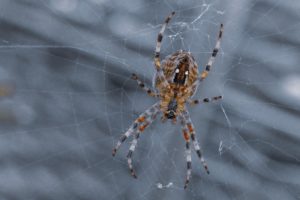

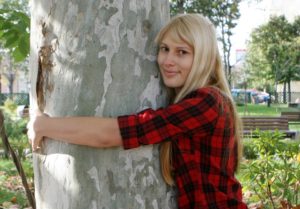
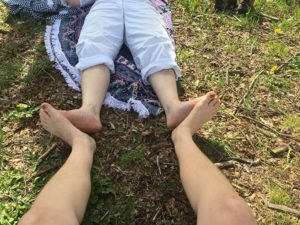
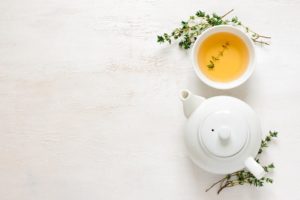
Very good idea. If this idea is successfully implemented, I believe the pandemic will be controlled.
Your strategies for coping are inspiring especially the emphasis on spending time in nature. It is a great reminder that sometimes the simplest activities like hugging trees or foot cuddling, can have a profound impact on our mental well being.
HVAC Services in Vernon BC
Good information!
This game combines aspects of Crazy Roll 3D with the exhilaration of driving, providing a unique and exhilarating experience for gamers of all ages.
Navigating the pandemic has challenged us all, but I’ve found that staying connected with loved ones is subacute in Torrance essential for mental health. Embracing new hobbies, like cooking and gardening, has been rewarding. It’s crucial to prioritize self-care and remain adaptable; these strategies have helped me find balance during uncertain times.
Novel approaches to pandemic management can offer much-needed adaptation and resilience, enabling people and communities to prosper in trying times. My brother needs my dissertation proposal and he’s quite worried about it. If you know of any platform where he can easily get dissertation services, please let me know. I would be very grateful to you.
Even though you’ll need the information from the previous post, you should still study more about retro games because they’re so popular.
With its vibrant graphics and engaging gameplay mechanics, drive mad captivates players, providing them with a visually appealing environment that enhances the overall gaming experience.
If pandemic stress has kept you with eyes shaded by insomnia-filled nights, begin by resting your eyes—literally and mentally. Eye-solate distractions by reducing screen time at bedtime to battle tiredness. Keep sharp eyes bright by maintaining a routine; small structure can add some brightness to your outlook. Search for silver linings, such as learning a new hobby or reconnecting with friends (counting online visits!). If you’re getting droopy-lidded with uncertainty, think about what you can manage—hydration, exercise, and deep breaths. Expand your horizon by going for mindful walks; fresh air does wonders in lifting mood as well as eyelids. Battle heavy-lidded fatigue with power naps—20 minutes can unlock a world of clarity. Look at the bigger picture: this won’t last a lifetime, so look at tiny victories. And if all else fails? Wink at the chaos—sometimes humor is the best remedy. Stay bright-eyed, resilient, and kind to yourself. We’ll see our way through this together.
Even though you’ll need the information from the previous post, you should still study more about Drift Boss because it’s so popular.
Many online games require players to make Drive Mad quick and strategic decisions under pressure. This constant need to decide helps improve decision-making skills, which are valuable in everyday life.
The application provided an intuitive user interface that made navigation simple and enjoyable for viewers of all technical skill levels. Content was organized into clear categories, and the search functionality helped users find specific titles quickly and efficiently. To learn more about the user experience and interface design principles that guided TeaTv’s development, visit this website TeaTv
for comprehensive insights.
With its vibrant graphics and engaging gameplay mechanics,TeaTV Teatv captivates players, providing them with a visually appealing environment that enhances the overall gaming experience.
With its vibrant graphics and engaging gameplay mechanics,TeaTV Teatv captivates players, providing them with a visually appealing environment that enhances the overall gaming experience.
No key system, fast injection, and wide script support—Delta Executor is a go-to tool for Roblox exploiters seeking efficiency.
Delta Executor is a powerful Roblox script executor known for its speed and user-friendly interface, making it a top choice for scripters.
Helpful for interviews and resume preparation.
You can even practice conversations easily.
It’s like a pocket coach anytime, anywhere Download chatgpt apk
Download hollow knight apk is the official -powered chatbot app released offering conversational responses, image generation, voice mode, and more
Vive la mejor experiencia de streaming conDownload MagisTV, ideal para toda la familia.
Mujhe is app se bohot faida hua. User interface simple aur attractive hai. Daily use ke liye perfect hai. Download playstore apk Thanks developers
The lyrics display is a cool feature. I sing along with ease and confidence now. Great for karaoke nights at home spotify premium mod apk
Waffle – Daily Word Game keeps players hooked with its colorful visuals and interactive gameplay, creating an immersive and enjoyable word puzzle experience.
App updates are regular and helpful. Each version improves performance.
Developers are doing great job. jiohotstar apk download
With its vivid graphics and immersive gameplay mechanics, Torrentio draws players in, offering a visually striking environment that elevates the entire gaming experience.
There are no extra ads in the APK version.It’s identical to the official app’s ad experience.So, there’s no increase in interruptions.tiktok mod app
Like a desert of light with no horizon. The eye searches for boundaries that aren’t there. Infinity on the monitor.black screen
Watch Yeh Rishta Kya Kehlata Hai Desi Serial
Today Video Episode Full Update On Star Plus and JioHotstar. Hindi Desi Serial Yeh Rishta Kya Kehlata Hai Complete All Latest Episodes in HD, Yeh Rishta Kya Kehlata Hai in High Quality.
12. Customer support is very helpful. Replies come quickly. They’re friendly and professional. lucky 97
With its vivid visuals and immersive gameplay mechanics, Vidmate APP draws players in, offering a visually striking environment that elevates the entire gaming experience.
I shared this app with my friends. They were all impressed with the collection. Now we enjoy movie nights together. It connects people through entertainment. Allmovieland apk download
BeeTV APK offers both old classics and new releases. A nice mix for all generations. Everyone in the house can enjoy.beetv
I enjoy how the levels gradually become harder. The game doesn’t overwhelm me at the start, but later it really tests my timing and patience.drive mad game
This blog is an honest and creative way to stay mentally healthy during the pandemic — from connecting with nature, to taking care of your emotions, to creating “unconventional” comforting techniques like foot cuddling. It encourages healthy ways to cope with stress rather than relying solely on medication.
Documentation could use a few more examples. Still, the basics are well explained and quick to follow. A couple more tutorials would make it perfect.dupe script
This is a crucial reminder. Exploring alternative approaches to mental health during these times is vital. It’s okay to feel afraid, but remember there are safer options. Check out royaledle for a fun daily mental break too!
This is a crucial reminder. Exploring alternative approaches to mental health during these times is vital. It’s okay to feel afraid, but remember there are safer options. Check out royaledle for a fun daily mental break too!
This is a really important point about considering safer options during times of panic. Finding healthy outlets is key. Maybe even trying something creative like animation with drawmingo?
Top Follow is a smart tool that helps you grow your social media quickly and easily. Gain real followers, likes, and engagement on Instagram and Facebook with safe, reliable, and user-friendly features that take your account to the next level
تریدرهای حرفهای میدانند که محدودیت تعداد اندیکاتور و تبلیغات مزاحم در نسخه رایگان تریدینگ ویو چقدر کلافهکننده است. برای دسترسی به تمام امکانات مثل ریپلای بار و آلارمهای نامحدود، نیاز به اکانت پرمیوم دارید. میتوانید برای خرید اکانت تریدینگ ویو اورجینال از خدمات شوپی استفاده کنید که اکانتهای قانونی (اسنشیال، پلاس و پرمیوم) را با ضمانت کامل و روی ایمیل شخصی شما فعال میکند.
در طراحی پاسپورت ترکیه گرافیسو تمام جزئیات امنیتی مثل مهر، امضا، هولوگرام و کد ملی درج شده. این سطح از دقت واقعاً نشون میده تیم حرفهای پشت کاره. من از پروژه پاسپورت ترکیه (فایل و فیزیکی) استفاده کردم و راضیام چون کیفیت چاپش دقیقاً مشابه نمونه اصلیه.
That is really fascinating, You are an excessively professional blogger. I have joined your rss feed and stay up for searching for extra of your magnificent post. Also, I’ve shared your website in my social networks.
The continuous item creation strategy helps you create highly creative battles melon sandbox.
آمارها دروغ نمیگن؛ رتبه ۱ گوگل حدود ۳۰٪ کلیکها رو میگیره و رتبه ۲ و ۳ به شدت افت میکنن. جنگ واقعی سرِ همون جایگاه اوله. سایتیگو با یک پلن اختصاصی و تهاجمی، سایت شما رو برای تصاحب این جایگاه طلایی آماده میکنه. اگر به کمتر از بهترین بودن راضی نیستید و میخواهید رهبر بازارتون باشید، پیشنهاد میکنم پکیج ویژه تصاحب رتبه یک گوگل با ضمانت رو بررسی کنید.
همیشه رقابت با سایتهایی که سالهاست لینک ۱ هستن ترسناکه. اونا اعتبار دامنه بالایی دارن. اما تجربه نشون داده با یک استراتژی آف-پیج (Off-page) تهاجمی و درست، میشه حتی غولهای بازار رو هم کنار زد. تیم ادزنو با این سرویس دقیقاً همین کار رو انجام میده و قدرت سایت شما رو به رخ رقبا میکشه. برای اینکه بالاتر از رقبا دیده بشید، راهکار شکست رقبای سرسخت در نتایج گوگل رو بررسی کنید.